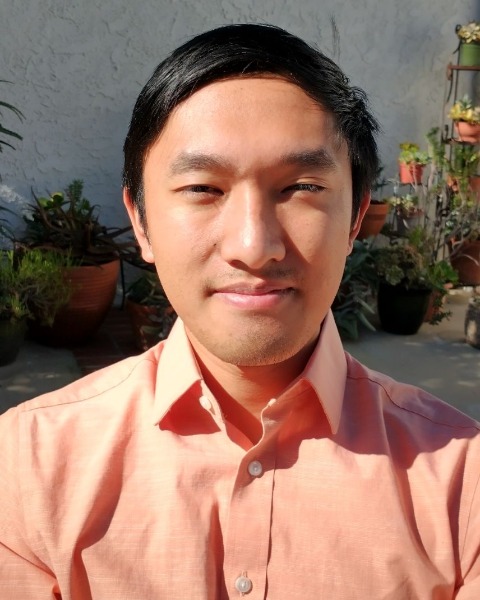Poster Presentation
Social Justice and Health Equity
Thursday Evening Poster Reception
THURS-092 - Health Coaching To Promote Weight-Inclusive Physical Activity Among College Students
Thursday, April 17, 2025
5:30 PM - 6:30 PM PST
Location: Pacific I/II, 2nd Floor
Area of Responsibility: Area IV: Evaluation and Research
Subcompetencies: 4.5.1 Communicate findings by preparing reports, and presentations, and by other means., 4.5.2 Disseminate findings.
Research or Practice: Research
Subcompetencies: 4.5.1 Communicate findings by preparing reports, and presentations, and by other means., 4.5.2 Disseminate findings.
Research or Practice: Research

David N. De Leon, MSK
Student/Lecturer
California State University Los Angeles
Glendale, California, United States
Presenter(s)
Learning Objectives:
At the end of this session, participants will be able to:
- Describe the physical and mental health benefits of weight-inclusive approaches to physical exercise over weight-centric pedagogy.
- Examine how a shift towards more weight-inclusive discourse on PA away from diet-focused and weight-centric pedagogy can lead to more equitable health outcomes.
- Implement similar weight-inclusive programs in their practice as a way to initiate a weight-inclusive paradigm shift in health education.
Detailed abstract description: Physical activity (PA) is important for physical and mental health. However, college students face several barriers to maintaining PA. Moreover, college students are susceptible to diet culture messages, resulting in body dissatisfaction and dysfunctional relationships with PA. Peer-led health coaching is a promising way of delivering health education to help college students adopt sustainable PA behaviors through a weight-inclusive lens. The purpose of this presentation is to report the results of a peer-led weight inclusive health coaching program. Peer health coaches trained in exercise psychology, motivational interviewing (MI), and weight inclusivity led 30-minute one-on-one virtual sessions with a client once a week for four consecutive weeks. Coaches’ use of MI was audio recorded and coded for competency. Eighteen participants in the program completed the Functions of Exercise Scale (FES), and Body Appreciation Scale-2 (BAS-2) at pre- and post-intervention and 26 participants completed a feedback survey about their experiences at post-intervention. Independent MI coding showed coaches met most levels of MI competency. There were no significant differences in participants’ FES or BAS-2 scores from pre- to post-intervention. However, through qualitative responses in the feedback survey, participants reported positive changes in their attitudes and behaviors toward PA as well as positive reception towards the program. Specifically, participants reported focusing less on diet and weight-centric PA practices, enjoying PA, and having greater appreciation towards their bodies and confidence that they could incorporate PA into their lives. While participants enjoyed this intervention, longer sessions may be required to change students’ PA motivation from weight and appearance management to health and wellness and increase their body appreciation. In addition to learning about research findings on weight-inclusive health coaching, attendees will also examine how a shift towards more weight-inclusive discourse on PA away from diet-focused and weight-centric pedagogy can lead to more equitable health outcomes. Additionally, attendees will receive instructions on how to implement similar weight-inclusive programs in their practice as a way to initiate a weight-inclusive paradigm shift in health education.
